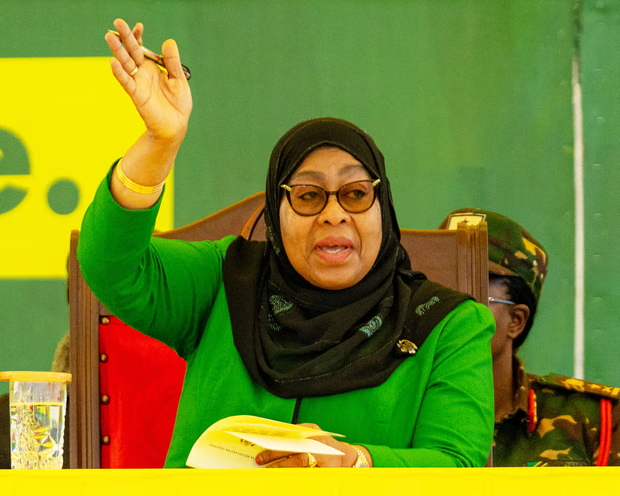
Tanzania experienced a nationwide internet disruption on election day, October 29, 2025, in what digital rights observers have described as one of the most severe connectivity restrictions in the country’s history. The blackout coincided with the opening of polling stations and quickly spread across mobile and fixed-line networks, cutting citizens off from essential digital platforms.
According to live data from internet observatory NetBlocks, national connectivity dropped by nearly 90 percent compared to the previous week. The decline began around midday, just as protests erupted in key cities, including Dar es Salaam and Sirari. By afternoon, most users could not access WhatsApp, Facebook, or Instagram without using Virtual Private Networks (VPNs). Several journalists confirmed that social platforms had been down since morning, limiting election coverage and citizen reporting.
This latest disruption continues a pattern of state-imposed internet restrictions during politically sensitive periods. Tanzania first drew international attention for large-scale digital blackouts during the 2020 general election, when authorities blocked access to major social networks and even restricted bulk SMS services. Over the years, additional measures have included the blocking of X (formerly Twitter) and the suspension of live-streaming features on TikTok and Instagram.
Authorities often justify such actions as necessary to maintain public order or prevent the spread of misinformation. However, critics argue that these shutdowns undermine democratic transparency and limit citizens’ right to access information — especially during elections when real-time communication is vital.
In May 2025, access to X was restricted again, with officials citing “moral concerns.” Similar disruptions were recorded in August 2024 during online campaigns by pro-democracy activists. In October 2025, Tanzania also disabled TikTok Live and Instagram Live, further tightening the flow of real-time content.

The cost of internet shutdowns extends far beyond digital silence. For Tanzania’s growing tech ecosystem, repeated disruptions threaten investor confidence, weaken consumer trust, and stall innovation. Startups, fintech firms, and e-commerce platforms suffer immediate revenue losses, while citizens are left cut off from essential financial and communication tools.
From a civic perspective, restricting connectivity on election day undermines transparency and accountability. Election observers and journalists reported significant challenges in uploading videos, photos, and reports from polling stations. Many media outlets struggled to verify incidents of voter suppression or irregularities, forcing them to rely on offline data collection and delayed updates.
The Tanzania Communications Regulatory Authority (TCRA), responsible for overseeing telecommunications operations, has not issued a public statement regarding the disruption. Historically, the regulator has denied ordering shutdowns, even as network data consistently shows coordinated actions across providers.
The TCRA has also warned citizens against the use of VPNs to bypass restrictions, labeling such activity as “unauthorized access” punishable under national law. Despite these warnings, VPN use remains widespread among journalists, digital entrepreneurs, and civil society actors.
Tanzania’s internet restriction places it alongside several African nations — including Ethiopia, Uganda, and Sudan — that have limited online access during elections or political unrest. Governments often cite national security concerns, but human rights organizations argue that these shutdowns are used to silence dissent and manipulate information flow.
Regional observers note that internet restrictions have become a recurring tactic in sub-Saharan Africa’s political playbook, especially as social media continues to empower citizens with tools for mobilization and accountability.
As Tanzania heads into a new political era, the recurring shutdowns highlight a deeper struggle between state control and digital freedom. The election-day blackout sends a chilling message to journalists, activists, and tech entrepreneurs: connectivity can be revoked at any moment.
For a country that has invested heavily in digital transformation and innovation hubs, the cost of undermining trust in the online ecosystem could prove long-term and irreversible. If sustained, these restrictions risk alienating Tanzania’s growing youth population — a generation that views digital access as a fundamental right, not a privilege.
Ultimately, the October 2025 shutdown reaffirms one truth: in the digital age, controlling connectivity has become as powerful as controlling the ballot box.